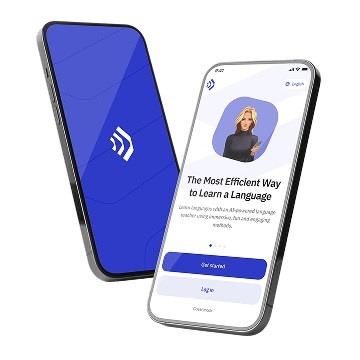Learning a new language can open doors to new cultural experiences, career opportunities, and personal growth. Among the many languages one could choose to learn, Spanish stands out due to its global significance and widespread use. For residents of Lithuania, learning Spanish offers a unique advantage in both personal and professional realms.
Global Significance: Spanish is the second most spoken language in the world by native speakers, making it an invaluable language for global communication.
Career Opportunities: With the increasing globalization of business, proficiency in Spanish can lead to enhanced job prospects in various sectors including diplomacy, international trade, and tourism.
Cultural Experience: Spanish-speaking countries are known for their rich cultural heritage, including literature, music, and cuisine. Learning Spanish can enrich one’s understanding and appreciation of these cultures.
Travel: Knowing Spanish can greatly improve travel experiences in over 20 countries where Spanish is the official language, making it easier to navigate and connect with locals.
Spanish Language Courses in Lithuania
Lithuania offers several options for those interested in learning Spanish, ranging from university programs to private language schools and online courses.
University Courses: Several universities in Lithuania offer Spanish language courses as part of their foreign languages departments. For example, Vilnius University and Kaunas University of Technology provide comprehensive Spanish language education, often including cultural immersion components.
Private Language Schools: There are numerous language schools in Lithuania that offer Spanish courses. These schools often provide flexible scheduling for all levels of learners, from beginners to advanced. Some notable schools include Kalba.lt and Lingua Lituanica, which are known for their immersive teaching methods and experienced instructors.
Online Courses: For those who prefer learning at their own pace or cannot commit to in-person classes, online Spanish courses are a viable option. Platforms like Duolingo, Babbel, and Rosetta Stone offer comprehensive Spanish language programs that can be accessed from anywhere.
Tutors: Personalized learning through private tutors can be particularly effective for language acquisition. In Lithuania, it is possible to find Spanish tutors who provide one-on-one sessions tailored to the student’s specific learning goals.
Integrating Spanish Learning into Daily Life
To enhance the Spanish learning experience and accelerate language acquisition, integrating the language into daily life is crucial. This practical application reinforces lessons learned in formal education and helps solidify language skills.
Language Meetups: Participating in language exchange meetups can provide conversational practice with native speakers or other learners. Cities like Vilnius and Kaunas often host such meetups, where individuals can practice speaking Spanish in a relaxed, social setting.
Spanish Media: Regularly consuming Spanish media such as films, television shows, music, and books can greatly improve listening and comprehension skills. It also helps learners acquire a more natural use of the language.
Cooking Spanish Cuisine: Engaging with the culture through cooking Spanish dishes can make the learning process more enjoyable and culturally immersive. It provides an opportunity to learn vocabulary related to food and cooking processes.
Travel: If possible, traveling to a Spanish-speaking country can provide an immersive environment that is highly conducive to learning the language. This firsthand experience allows learners to practice their language skills in real-life situations.
Challenges and Solutions in Learning Spanish
While learning Spanish in Lithuania offers many opportunities, learners may also face certain challenges. However, these can be addressed with effective strategies.
Language Barrier: Beginners might find Spanish pronunciation and grammar challenging. Overcoming this requires regular practice and possibly attending additional pronunciation workshops or listening exercises.
Resource Availability: Finding advanced level resources or specific dialect materials might be difficult. This can be mitigated by using online resources, joining online communities, or engaging with tutors who specialize in different dialects of Spanish.
Motivation: Sustaining motivation can be challenging, especially when progress seems slow. Setting clear, achievable goals and celebrating small victories can help maintain enthusiasm.
Cultural Differences: Understanding cultural nuances is as important as learning the language itself. Engaging with Spanish culture through community events, films, and books can enhance understanding and appreciation.
Conclusion
Learning Spanish in Lithuania is a journey filled with opportunities for personal and professional growth. Through university courses, private schools, online platforms, and daily integration of the language, learners can effectively acquire Spanish language skills. By overcoming challenges with practical solutions and immersing themselves in cultural experiences, individuals can enhance their language proficiency and enjoy the rich benefits of bilingualism. Whether for career advancement, travel, or personal satisfaction, learning Spanish in Lithuania is a rewarding endeavor.





